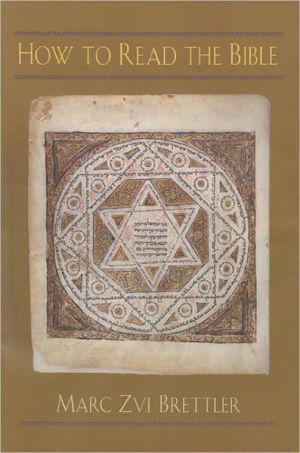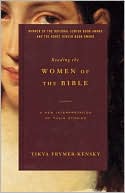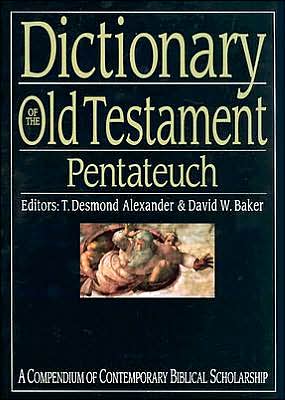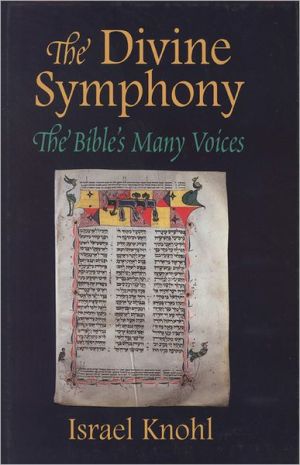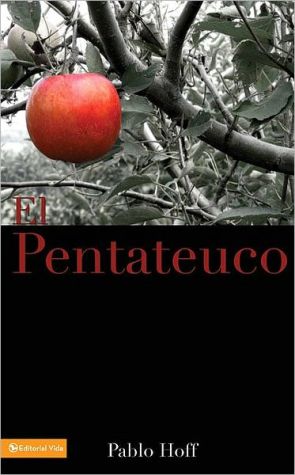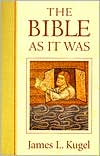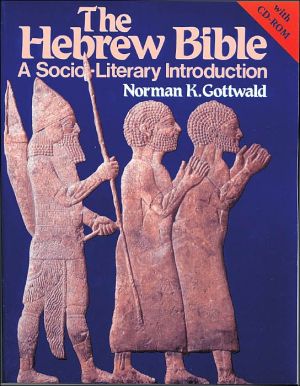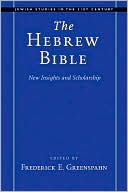How to Read the Bible
Master Bible scholar and teacher Marc Brettler argues that today’s contemporary readers can only understand the ancient Hebrew Scripture by knowing more about the culture that produced it. And so Brettler unpacks the literary conventions, ideological assumptions, and historical conditions that inform the biblical text and demonstrates how modern critical scholarship and archaeological discoveries shed light on this fascinating and complex literature.\ Brettler surveys representative biblical...
Search in google:
Shedding new light on the Bible by reading it as it was meant in the time and place in which it was written In his new book, master Bible scholar and teacher Marc Brettler argues that today's contemporary readers can only understand the ancient Hebrew scripture by knowing more about the culture that produced it. And so Brettler unpacks the literary conventions, ideological assumptions, and historical conditions that inform the biblical text and demonstrates how modern critical scholarship and archaeological discoveries shed light on this fascinating and complex literature. Brettler surveys representative biblical texts from different genres to illustrate how modern scholars have taught us to "read" these texts. Using the "historical-critical method" long popular in academia, he guides us in reading the Bible as it was read in the biblical period, independent of later religious norms and interpretive traditions. Understanding the Bible this way lets us appreciate it as an interesting text that speaks in multiple voices on profound issues. This book is the first "Jewishly sensitive" introduction to the historical-critical method. Unlike other such introductory texts, the Bible that this book speaks about is the Jewish one-with the three-part TaNaKH arrangement, the sequence of books found in modern printed Hebrew editions, and the chapter and verse enumerations used in most modern Jewish versions of the Bible. In an afterword, the author discusses how the historical-critical method can help contemporary Jews relate to the Bible as a religious text in a more meaningful way. The Reporter "...one of the most exciting Judaic studies books I've read in years.... Brettler's writing is easy and clear enough for non-scholarly readers. I highly recommend his work."
1Reading as a Jew and as a scholar12What is the Bible, anyway?73The art of reading the Bible134A brief history of Israel195With scissors and paste : the sources of Genesis296Creation vs. Creationism : Genesis 1-3 as myth377The ancestors as heroes498Biblical law : codes and collections619Incense is offensive to me : the cult in ancient Israel7310"In the fortieth year ... Moses addressed the Israelites" : deuteronomy8511"The walls came tumbling down" : reading Joshua9512"May my Lord King David live forever" : royal ideology in Samuel and Judges10713"For Israel tore away from the house of David" : reading Kings11714Revisionist history : reading Chronicles12915Introduction to prophecy13716"Let justice well up like water" : reading Amos14917"They shall beat their swords into plowshares" : reading (first) Isaiah16118"I will make this house like Shiloh" : reading Jeremiah17319"I will be for them a mini-temple" : reading Ezekiel18520"Comfort, oh comfort my people" : the exile and beyond19921"Those that sleep in the dust ... will awake" : Zechariah, apocalyptic literature, and Daniel20922Prayer of many hearts : reading Psalms21923"Acquire wisdom" : reading Proverbs and Ecclesiastes23124"Being but dust and ashes" : reading Job24325"Drink deep of love!" : reading Song of Songs25726"Why are you so kind ... when I am a foreigner?" : reading Ruth v. Esther26727The creation of the Bible273Afterword : reading the Bible as a committed Jew279
\ Sh'ma/Koret Book ReviewAs a professor of biblical studies, I am frequently sent textbooks . . . and I often consult academic introductions to the field as well. None of them is as clear, sophisticated, and readable as this book. For Jewish and non-Jewish readers. . . . The book's accomplishments remain stellar.—Benjamin D. Sommer; Sh’ma/Koret Book Review\ \ — Benjamin D. Sommer\ \ \ \ \ \ JBooks.com“You probably need this book. . . . To help span the gap between lay reader and specialist, Marc Brettler has written an extraordinarily accessible book. . . . Brettler is clearly a master.”—JBooks.com\ \ \ \ The Reporter“One of the most exciting Judaic studies books I've read in years. . . . Brettler’s writing is easy and clear enough for non-scholarly readers. I highly recommend his work.”—The Reporter \ \ \ \ \ \ \ Sh'ma/Koret Book Review“As a professor of biblical studies, I am frequently sent textbooks . . . and I often consult academic introductions to the field as well. None of them is as clear, sophisticated, and readable as this book. For Jewish and non-Jewish readers. . . . The book's accomplishments remain stellar.”—Benjamin D. Sommer; Sh’ma/Koret Book Review\ \ \ \ \ \ \ The Reporter"...one of the most exciting Judaic studies books I've read in years.... Brettler's writing is easy and clear enough for non-scholarly readers. I highly recommend his work."\ \ \ \ \ JBooks.com"You probably need this book... To help span the gap between lay reader and specialist, Marc Brettler has written an extraordinarily accessible book... Brettler is clearly a master."\ \ \ \ \ Publishers WeeklyHow does a person read the Bible, which is a product of another time and culture, and have it make sense? Brettler, who chairs the department of Near Eastern and Judaic Studies at Brandeis, begins with the complicated web of doctrine, history and myth that is the Hebrew Bible and untangles it until a clear and beautifully drawn picture emerges. His mode of interpretation is the "historical-critical" method-reading the text in its historical setting, employing critical methodology to explicate and, when possible, harmonize "the multiple ancient perceptions of God, preserved in our composite Bible." After explaining his approach, Brettler takes readers through the historical periods of the Bible, placing the stories in their proper context. He explains, for example, the importance of the Jewish exile in Babylon to the people's view of the prophetic calling. He also discusses the poetic books, their formation and content, and the messages of the prophets. The result is an eye-opening journey through a familiar text, a fresh look at an old story. Written for the beginning reader as well as the scholar, this is an outstanding introduction to the Hebrew Bible and the history of Israel, and should be widely read. (Dec.) Copyright 2005 Reed Business Information.\ \ \ \ \ Library JournalDoes one need a book to learn how to read a sacred text? Yes, argues Jewish scholar Brettler (The Jewish Study Bible), who claims that there is more to reading the Hebrew Bible than meets the eye. His goal is to help readers see the scriptures as scholars see them. Brettler shows how biblical passages can be read more clearly by using the historical-critical method, which seeks to view the biblical texts in their original historical context and as particular forms of literature. Through the many chapters of the book, covering the creation, patriarchs, biblical law, kingship, prophets, and wisdom literature, Brettler interprets significant texts and shows the effectiveness of the historical-critical approach. In the process, he provides a good overview of the Hebrew Bible and the history of Israel. A major drawback, however, is the book's scholarly tone; a simpler style would reach the college student or adult reader more effectively. Steven McKenzie's How To Read the Bible, though written from a Christian perspective, is a much clearer work. An optional purchase.-John Jaeger, Dallas Copyright 2005 Reed Business Information.\ \
